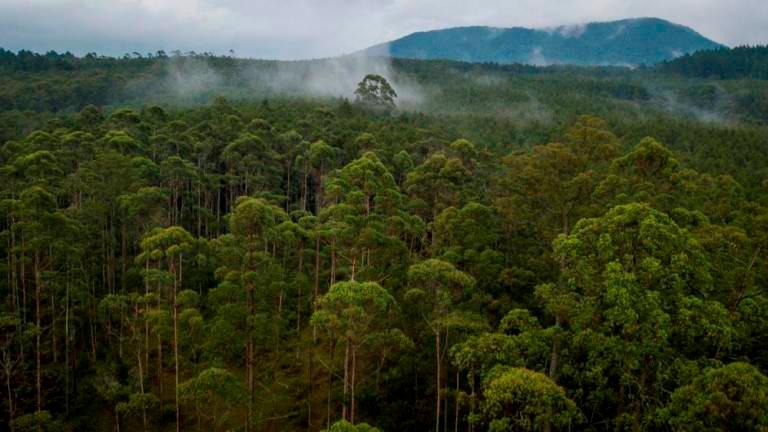PETALING JAYA: An area of 3.2 million hectares of natural forest in Malaysia, which makes up 16% of the country’s remaining forests, are at risk of being cut down.
The “State of the Malaysian Rainforest 2024” report by independent regional watchdog RimbaWatch revealed of the total area, 2.4 million hectares are in forest reserves turned into timber plantations.
RimbaWatch co-founder and director Adam Farhan said if deforestation happens, Malaysia’s forest cover will drop to below 50% of the country’s land mass, breaking the government’s promise to maintain at least that threshold as forested areas.
He said timber plantation activities represent 76% of the threat to Malaysia’s forests, with other risk factors linked to hydropower projects, degazettement of forest reserves and oil palm plantations.
“Before RimbaWatch published our map showing areas threatened by deforestation, we had no idea of the scale of the threat.
“Specific areas such as Bukit Lagong near Kuala Lumpur were assumed safe until our expose revealed plans to parcel it out to 27 quarry companies, covering about 850ha,” Adam said.
RimbaWatch, that conducts research and analyses on climate-related issues, also revealed that Sabah, Sarawak, Kelantan, Pahang are among states affected.
He said deforestation will be a significant contributor to carbon emissions as their calculations show that clearing 2.4 million hectares of the said forest will release 368 million tonnes of carbon dioxide.
He added that by clearing such a huge area, Malaysia would be at risk of losing its carbon sinks and potentially fail to uphold its international commitments to mitigate climate change.
“When these areas are cleared, it would devastate everything. Essentially, removing forests in indigenous areas for development means displacing indigenous communities and destroying their livelihoods.
“This must be addressed urgently, as hundreds of hectares of indigenous land are being cleared each month without the free, prior and informed consent of the communities. This situation is extremely concerning and demands immediate action.”
Adam said timber plantations can lead to broader issues such as flooding, landslides and increase in local temperatures, adding that the clearance of natural forest could jeopardise Malaysia’s biodiversity and ecological functions, which are fundamental to its resilience to worsening climate change impacts such as heatwaves.
“Based on a study, deforestation in Malaysia could raise local temperature by about 4.5°C.
“This temperature rise is significant, particularly in the context of climate change. If a local area temperature is already around 33°C, an increase of 4.5°C would make the area nearly uninhabitable.”
He also said protecting Malaysia’s forests is crucial not only for maintaining biodiversity and preventing natural disasters but also for regulating local temperature and mitigating the effects of climate change.
“RimbaWatch has called for an immediate end to all conversions of forest reserves to timber plantations. Malaysia should also extend its forest cover commitment by developing a time-bound strategy to maintain natural forest cover.
“This should include enshrining key components of the strategy in federal and state-level legislations, such as the upcoming Climate Change Act,” he said.









